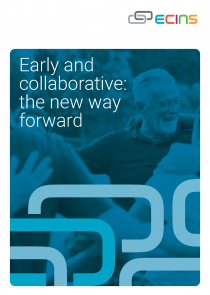The Troubled Family Initiative is spurring many local authorities and their partners to look at the different strategies being used around the country to help them deliver the best outcomes for their own communities. But what works and what doesn’t?
Empowering-Communities took part in a recent online debate with a team of panellists from local government, charities, support agencies and IT providers who were keen to share their views and opinions about which interventions are getting positive results and saving public money.
We share with you here some of the key points raised:
Amanda Whittaker-Brown is a programme manager in the LGA productivity team:
Are staff skilled enough to cope with change? I believe that some authorities are finding the current skills and capabilities of the workforce are not fit for purpose and will need to implement a more radical culture change programme. Redesigning services could help the troubled families agenda: Local authorities and partners have been focusing on and spending significant amounts of money on complex families for years, so the emphasis is now about doing it in a much more co-ordinated, efficient and effective way. Several councils are taking quite a radical new look at the way services are designed – I think there is great potential to share that learning.
Steve Skelton is head of policy and partnerships at Stockport and Greater Manchester combined authority (GMCA):
Funding is a big problem: A strong return on investment case still needs investment, and there’s scant around at present. Self-funding in reality is additional funding now and reduced funding later. Where’s the additional funding at scale currently? The challenge is to re-profile existing spend – from reactive to preventative services – but that requires either decommissioning reactive services before the benefit of earlier intervention is felt, or double running and double funding both reactive and preventative services.
Rhian Beynon is head of policy and campaigns for Family Action:
We need to prevent the troubled families of the future too: This programme doesn’t obviate the need for the multi-systemic approach, we actually need it more, as well as a more nuanced approach to the meaning of early intervention. Arguably the earliest time for intervening for children and tackling mental health during and after pregnancy is neglected. Family nurse partnership and extension of the health visitor programme will not cover all the bases. We need to be working with, not just for families: The challenge for councils and their partners is to translate looked for outcomes into monitoring and evaluation systems that will be easily understood and get buy-in from a wide range of partners: the political members, the practitioners working with families and of course the families themselves. The systems also need to support performance management to some extent. Family Action are working with Family Star, a model for monitoring families’ progress which was developed in partnership with Triangle, local authorities, practitioners and families themselves. Families get some say in the reporting of their progress, which is important to bringing them onside with the outcomes.
Gary Rawlins is public sector sales manager of Q Associates:
Local government has a tendency towards over complication: And yet, the challenge is not in managing the families already categorised as troubled, it’s looking for those with three or four of the risk factors and ensuring they do not develop further challenges. This potentially increases the scale massively and I’m not certain that the current detection methods are adequate.
Leora Cruddas is Harrow Council’s divisional director for quality assurance, commissioning and schools:
Having one key worker is often the best option. We have a consent-based model in Harrow and multi-agency approaches are powerful, but we have found that families do respond well to having a dedicated worker. Our view is that it is important to de-clutter the (often confusing) range of professionals working with a family and to enable the family to build a relationship with a key worker, who then pulls in support from the wider network as and when necessary.
John Curtis is the project manager for the improving information sharing and management (IISaM) national exemplar: Information sharing is essential to making troubled families work: We have set up a site about information sharing which might be useful for councils. The toolkit is structured into six stages of the ‘information sharing journey’ and provides practical guidance. The site includes a number of case studies (such as developing a better privacy notice), video about one of our pilot sites (Leicestershire county council), templates and guidance and top questions.
ECINS’ View
Sharing information, creating an environment where everyone knows what everyone else is doing and collating proper profiles on the individual family members is absolutely crucial.
A family is made up of individual members each with their own issues and problems and their own external influences that also have a bearing on their behaviour, choices and lifestyle.
Local authorities need to get an accurate picture of the needs of each person within a troubled family, and the past support and interventions they have undertaken with them. They need to collate information from other departments, authorities and external agencies including the police, schools, health, youth workers and support groups to find out what interactions they have also had with family members.
This information needs to be pulled together in one place where everyone who needs to can access and update it if they need to.
This allows issues to be be quickly addressed, reduces duplication of effort and resources and equips key workers with the background knowledge they need to ensure that the right people are providing support at the right time.


